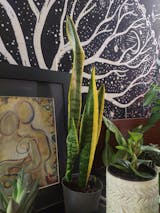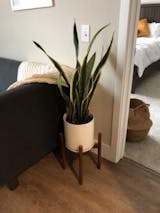Couldn't load pickup availability
Sansevieria Snake Plant, also known as the Mother-in-Law's Tongue, is a timeless indoor plant celebrated for its upright, sword-shaped leaves and low-maintenance care. Its striking green foliage, often edged with yellow or silver stripes, makes it a popular choice for homes and offices. Renowned for its air-purifying properties, this hardy plant thrives in low light and requires minimal watering, making it ideal for both beginners and experienced plant enthusiasts.
Common Names
- Snake Plant
- Mother-in-Law's Tongue
- Viper’s Bowstring Hemp
- Sansevieria
Botanical Classification
- Kingdom: Plantae
- Order: Asparagales
- Family: Asparagaceae
- Genus: Sansevieria
- Species: Sansevieria trifasciata
Native Habitat
Sansevieria Snake Plant is native to the arid regions of West Africa. It naturally thrives in dry, sandy soil and is highly tolerant of drought. This resilience allows it to adapt to various indoor environments, including spaces with low humidity and indirect light.
Historical and Cultural Significance
The Sansevieria Snake Plant has been cherished for centuries for its durability and aesthetic appeal. It is often associated with good luck and positive energy in Feng Shui practices. Its ability to filter toxins from the air has also earned it recognition as one of NASA’s top air-purifying plants.
Uses and Popularity
Sansevieria Snake Plant is widely used as an ornamental houseplant due to its sleek, modern look and low-maintenance requirements. It’s perfect for offices, living rooms, and bedrooms. Its air-purifying qualities also make it a healthy addition to indoor spaces.
Conservation Status
Sansevieria Snake Plant is not considered endangered and is widely cultivated, ensuring its availability in nurseries and online stores.
Description
Physical Characteristics
Sansevieria Snake Plant features long, upright leaves that are typically dark green with lighter green or yellow variegated edges. The leaves are thick, rigid, and sword-shaped, giving the plant a bold architectural appeal.
Growth Habit
This plant grows in an upright, clumping pattern, making it ideal for compact spaces. It can reach heights of 2 to 4 feet (60-120 cm) indoors, depending on the variety and care provided.
Popular Sansevieria Varieties
Sansevieria Boncel (Starfish Sansevieria)
- Compact rosette-shaped growth with cylindrical leaves.
Sansevieria Black Coral
- Dark green leaves with silver stripes for a modern look.
Sansevieria Laurentii
- Classic snake plant with golden-yellow edges.
Sansevieria Moonshine
- Silvery-green leaves with a sleek, contemporary vibe.
Sansevieria Cylindrica
- Cylindrical, spear-like leaves ideal for minimalist décor.
Care Guide
Light Requirements
Sansevieria Snake Plant adapts to various light conditions, from low light to bright, indirect light. It performs best in medium to bright light but can tolerate low-light areas. Learn More
Watering Needs
Allow the soil to dry out completely between waterings. Overwatering can lead to root rot, so water sparingly, especially during winter. Indoor Plant Watering
Soil Preferences
Use a well-draining cactus or succulent mix. Adding sand or perlite improves drainage, preventing excess moisture retention. Indoor Potting Mix
Humidity
Sansevieria Snake Plant thrives in normal indoor humidity levels and does not require additional misting.
Temperature
Keep the plant in temperatures between 60°F and 85°F (16°C to 29°C). Avoid exposing it to drafts or frost.
Common Pests
Spider Mites
Spider mites can cause speckled leaves and webbing. Increase humidity and wipe leaves with a damp cloth to prevent infestations. Learn More
Mealybugs
Mealybugs appear as white, cottony spots. Remove them with rubbing alcohol or insecticidal soap. Learn More
FAQs
Is the Sansevieria Snake Plant pet-friendly?
No, it is mildly toxic to pets if ingested. Keep it out of reach of cats and dogs.
How often should I water my Snake Plant?
Water every 2-3 weeks, allowing the soil to dry out completely between waterings.
Can Snake Plants grow in low light?
Yes, they are tolerant of low light but grow best in medium to bright, indirect light.
How tall can a Snake Plant grow?
Indoor Snake Plants can grow between 2-4 feet tall, depending on the variety.
How to take care of Sansevieria Snake Plant
Sun: Indirect
Sun: Indirect
Light: Low
Light: Low
Water: When fully dry
Water: When fully dry
Humidity: Low
Humidity: Low
Pet Friendly: Caution
Pet Friendly: Caution
Delivery Policy for Plant Condition
Delivery Policy for Plant Condition
"I have only received part of my order. What to do?
No worries if you've only got part of your order! Our plants come from different nurseries and might arrive in separate shipments, typically 1-2 days apart. It's all part of ensuring your green friends reach you in top-notch condition!
If you do not receive the remaining packages within 48 hours contact support at info@mygreenscape.ca
What is the Life Time Support?
Absolutely! Lifetime support means you can count on us whenever you have questions or uncertainties about your plant. Whether you're puzzled by its behavior or just want to ensure it's thriving, we're here for you. Connect with us on Instagram @mygreenscapeto or shoot us an email at support@mygreenscape.ca.
When it comes to our guarantee for plants shipped with standard or express, rest assured that we offer a 30-day happy healthy plant guarantee on all such shipments. This ensures that your plants are covered for 30 days after delivery, giving you peace of mind regarding their condition. If you have any concerns within this period, feel free to reach out to us for assistance.
For further details, please visit our Local Delivery, Store Pickup, Standard Shipping Guide Page.
What to expect
What to expect
Your plant will arrive in a standard nursery pot, typically 0.5" - 1" smaller than the stated size to seamlessly fit into your chosen decorative pot. Washable Paper Planter Bags are available for separate purchase.
Just like nature intended, each plant is unique, showcasing natural variations in size, shape, and characteristics. Our commitment is to deliver a plant that closely resembles the one featured on our website, matching your chosen size, and with the potential to thrive happily in your home.
Frequently Asked Questions
Frequently Asked Questions
Certainly! If you're pondering about ordering plants online, you're not alone. We've compiled the most frequently asked questions. Check out our FAQ section here for quick answers! Happy planting!
Plant & Pot Size Chart
Plant & Pot Size Chart
Choosing the right pot size for your plants can be a daunting task, especially if you're new to gardening. But fear not! Our pot sizes chart can help you find the perfect match for your plants, ensuring they have enough space to grow and thrive. With our guide, you'll be able to confidently choose the right pot size and plant variety for your gardening needs.
Plant Pot Size Guide.

| Extra Small | 7-10 cm | 2.5 - 3 inches |
| Small | 11-12 cm | 3.5 - 4 inches |
| Medium | 14-17 cm | 5 - 6 inches |
| Large | 19-21 cm | 8 - 10 inches |
| Extra Large | 24-27 cm | 12 - 14 inches |
All sizes are specified in product details.
Your Complete Guide to Pot Sizes: What Size Should You Choose?

When selecting a pot for your plant, it's important to find the right size. But with all the different options out there, how do you know which one is best? We're here to help!
MyGreenscape's pot sizes chart is a great resource for finding your perfect fit. Our easy-to-read chart takes out all the guesswork and helps you quickly choose the right size for your plant.
Smaller pots are best for seedlings or small plants just starting out. These tend to be shallow but wide, allowing enough room for the roots of the young plant but not too much where they get overcrowded. Medium-sized pots are ideal when your plant has grown from its infancy and is ready for more space. These are deeper and wider than small pots, so that it can accommodate larger root systems - making sure your plant gets enough nourishment while still giving it breathing room. Large pots are top choice if you have an established plant in need of lots of space - think trees and large shrubs! The spacious depth and width allow plenty of room for deep root systems without struggling for air or light.
No matter what size you choose, MyGreenscape has got you covered, with our pot sizes chart guaranteeing you find the perfect fit every time!
Winter Shipping Protection
Winter Shipping Protection
We take extra care with each package during the colder months. For destinations experiencing cold weather, we provide insulated packaging and heat packs as needed to protect your plants from freezing temperatures. With Winter Shipping Protection, your plants are equipped to arrive safe and sound, even in winter’s chill.
Care Guide
Care Guide
Explore essential care tips. check out our Comprehensive Resource for Indoor Plant Care.
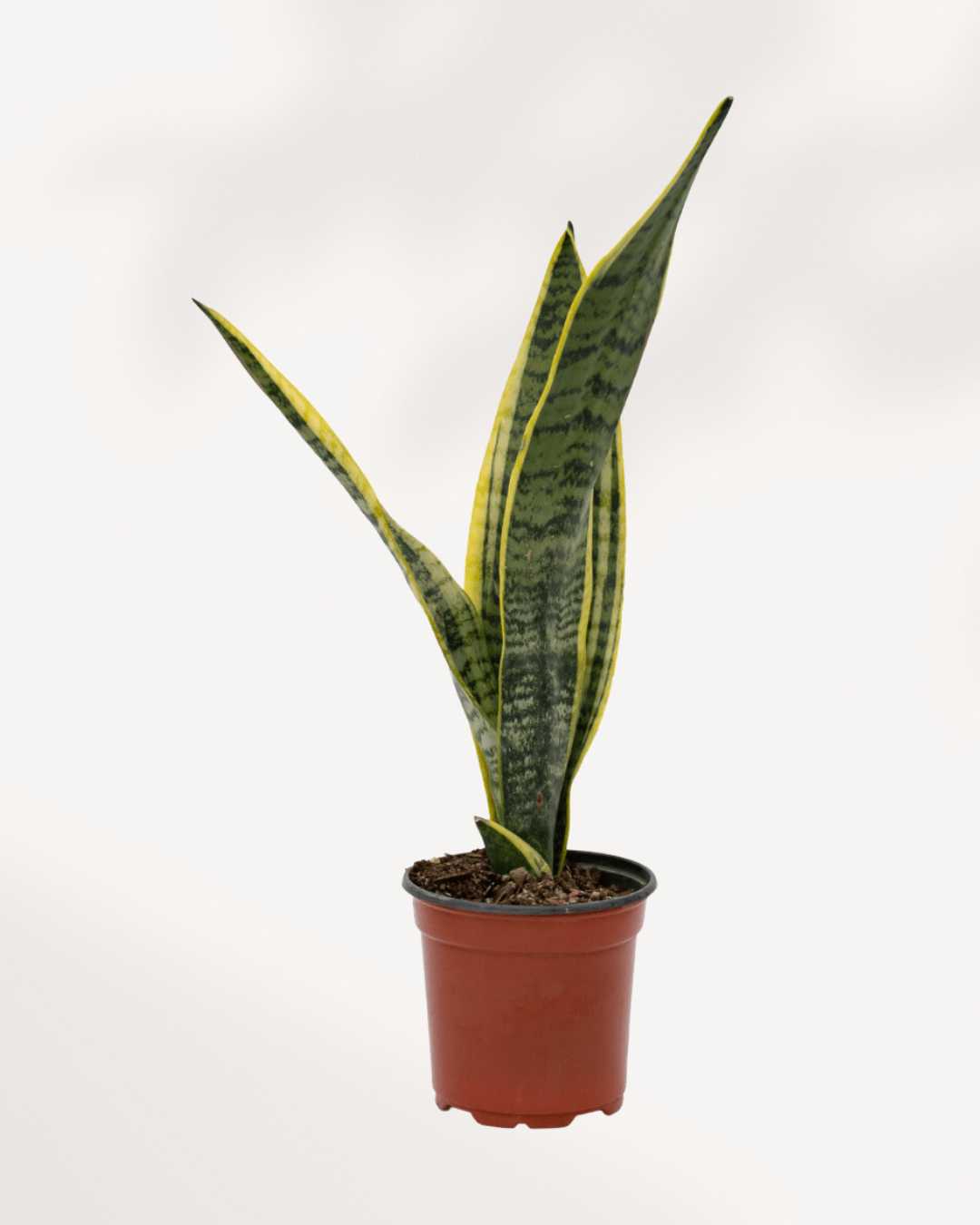
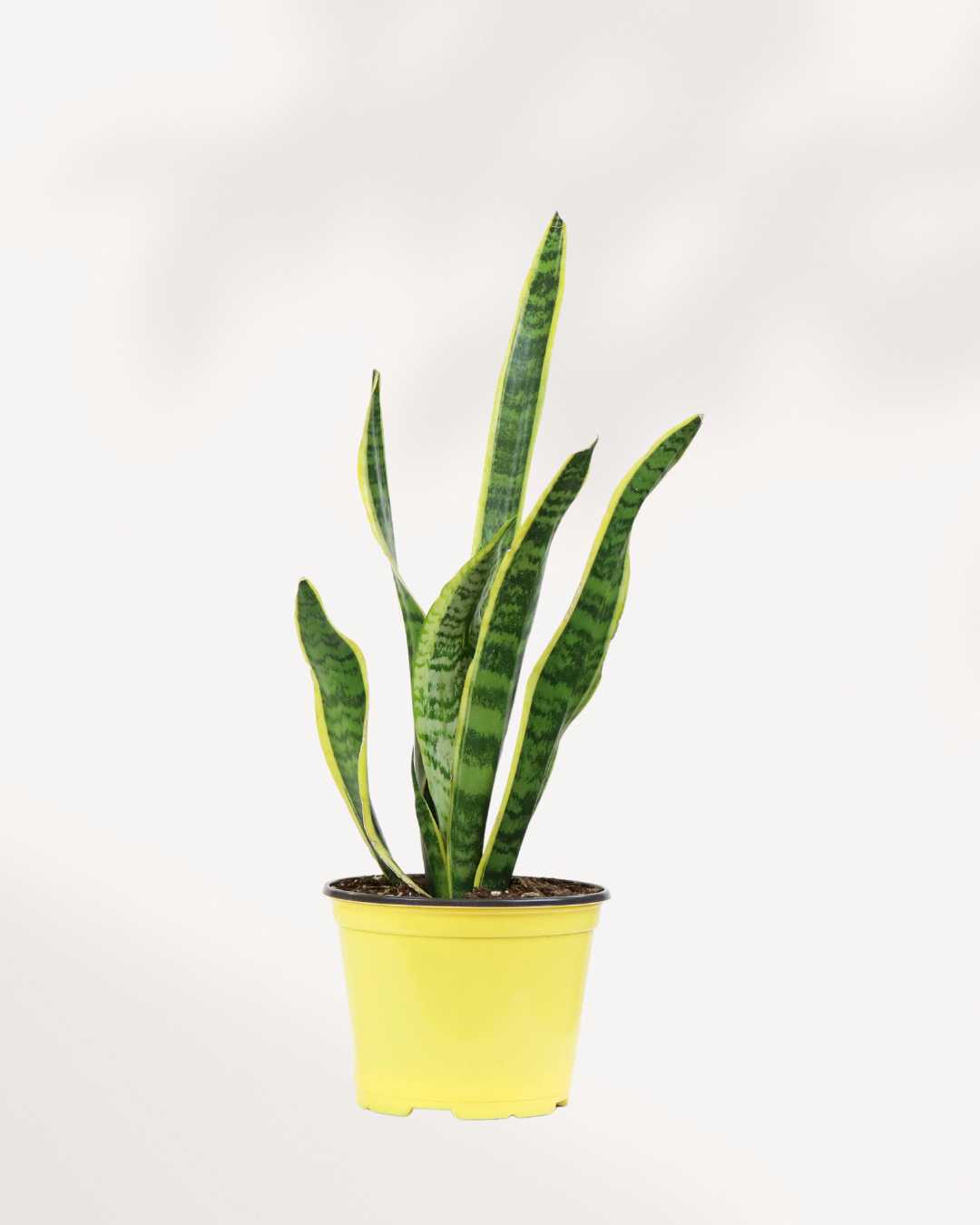
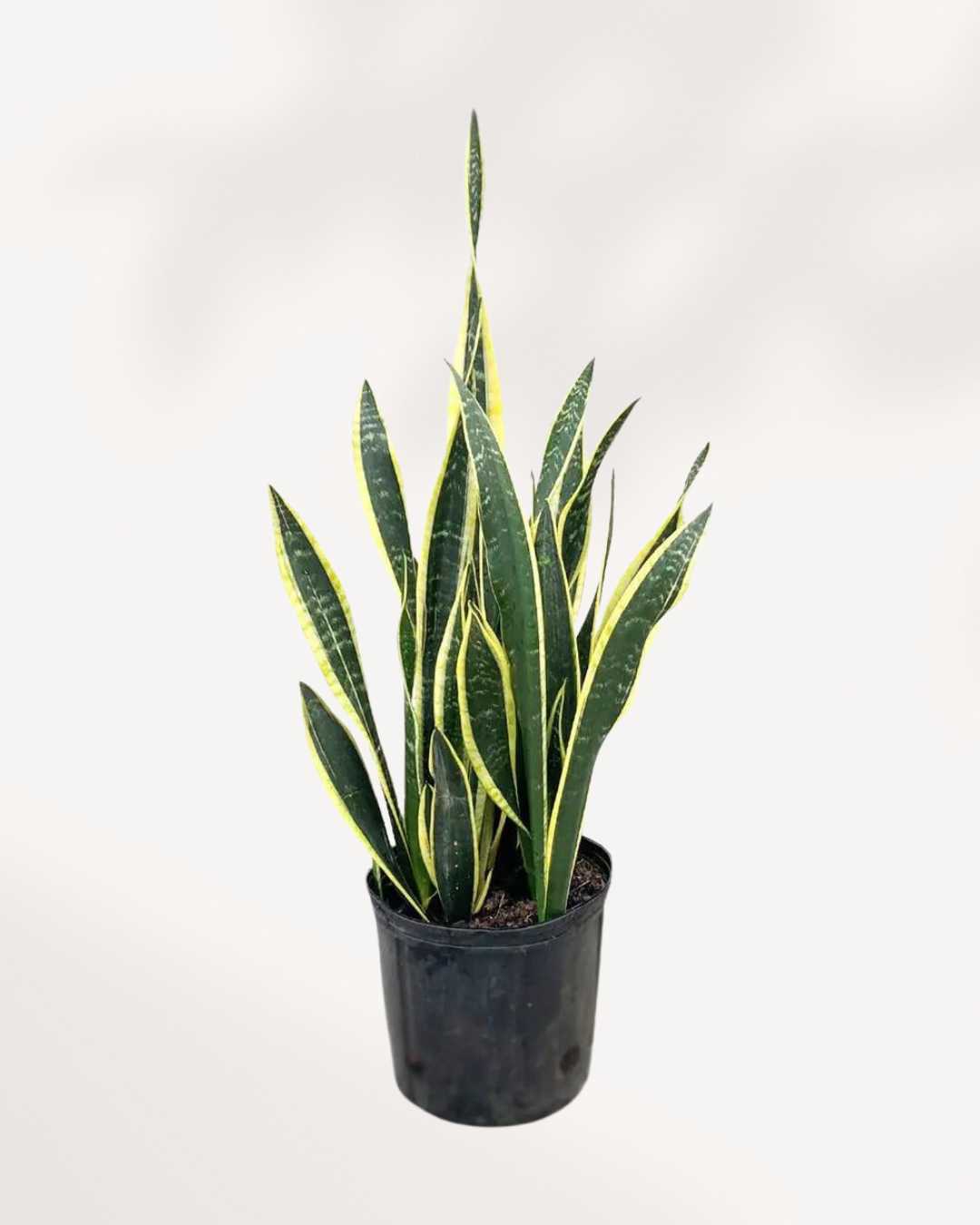
WATERING MADE EASY
Check soil moisture before watering and use a potting mix that drains well. It’s the secret to healthy, happy plants!
Hear From Happy Plant Parents.
Who have brought Mygreenscape plants into their homes.




